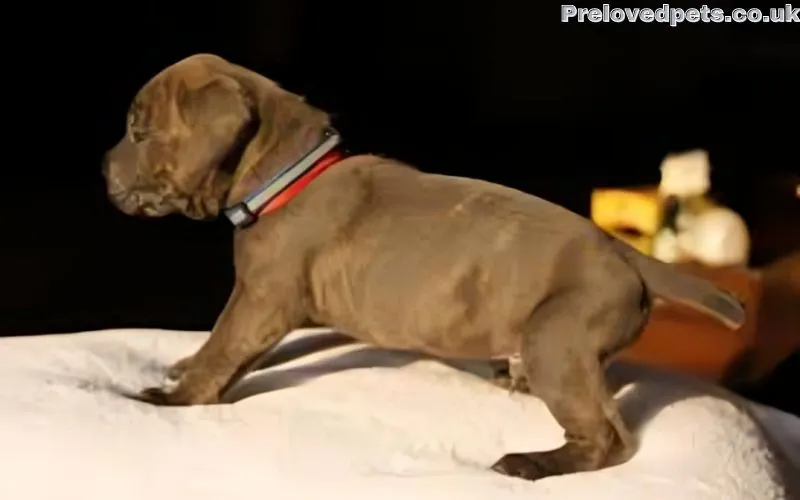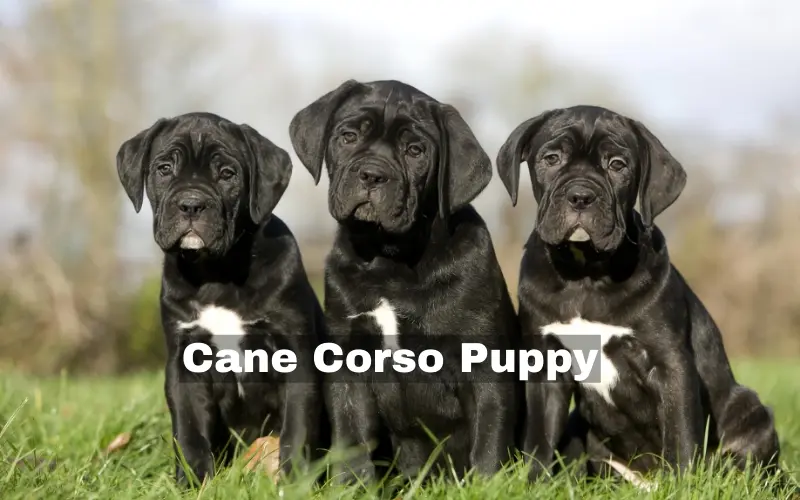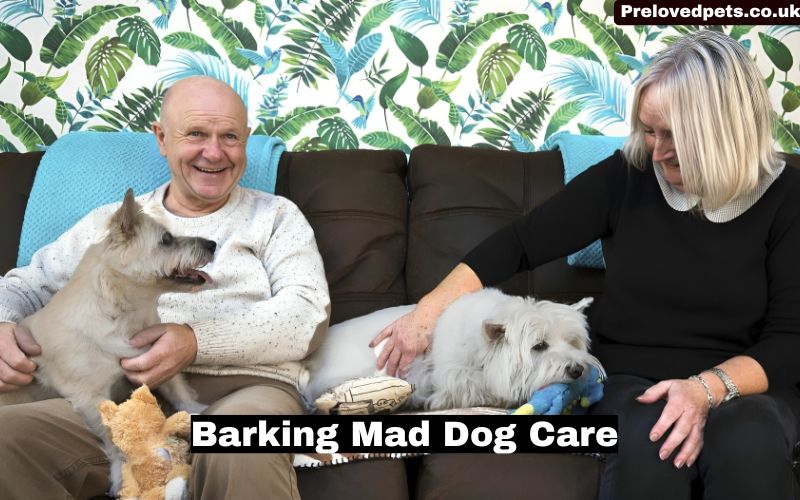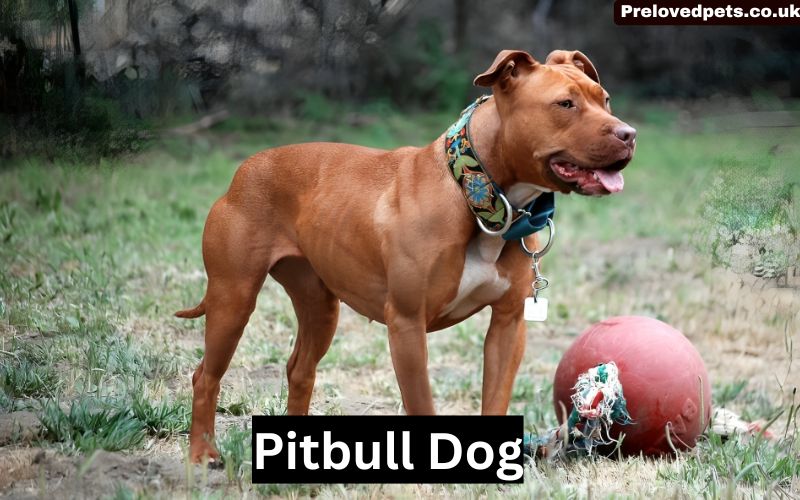The Cane Corso Puppy, an imposing and noble breed, has become increasingly popular as a family pet and guardian. Originating from Italy, these dogs are known for their loyalty, intelligence, and protective nature. Owning a Cane Corso puppy is a significant commitment that requires understanding their unique needs and characteristics. This comprehensive guide aims to provide you with all the essential information about raising a Cane Corso puppy, including their history, temperament, training, health care, and more.
History and Origin
The Cane Corso, also known as the Italian Mastiff, has a rich history dating back to ancient Rome. Their name “Cane Corso” comes from the Latin “Cohors,” which means “protector” or “guardian.” These dogs were originally used as war dogs, hunting large game such as boar, and guarding property. Over time, their role evolved to become more of a farm dog, assisting with herding cattle and protecting livestock.
The breed almost faced extinction in the mid-20th century, but dedicated enthusiasts revived it, focusing on preserving its working abilities and noble demeanor. The Cane Corso was recognized by the American Kennel Club (AKC) in 2010, which helped increase its popularity worldwide.
Physical Characteristics
Cane Corso puppies grow into large, muscular dogs with a distinct appearance. Males typically stand between 25 to 27.5 inches tall at the shoulder, while females are slightly smaller, ranging from 23.5 to 26 inches. Adult males weigh between 99 to 110 pounds, with females weighing slightly less. They have a short, dense coat that is somewhat coarse to the touch.
The coat colors can vary, including black, gray, fawn, red, and brindle. Some may have a small white patch on the chest. The Cane Corso has a large, broad head with a pronounced stop and a square muzzle. Their eyes are almond-shaped and can vary in color from dark brown to lighter shades, depending on the coat color. Traditionally, their ears are cropped to stand upright, though many modern owners choose to leave them natural, which gives a softer expression.
Temperament and Personality
Cane Corso puppies are known for their strong, confident personalities. They are intelligent, loyal, and protective, making them excellent guard dogs. However, their temperament requires responsible ownership and early socialization. Cane Corsos form strong bonds with their families and are known for their unwavering loyalty. They are affectionate with family members and are often described as “velcro dogs” because they like to stay close to their owners.
This breed has natural protective instincts, making them excellent watchdogs. They are cautious around strangers and will alert their owners to any potential threats. Cane Corsos are highly intelligent and trainable. They thrive on mental stimulation and enjoy tasks that challenge their minds. Early socialization is crucial for Cane Corso puppies to ensure they grow up to be well-rounded adults. Exposing them to different people, environments, and other animals from a young age can help mitigate any potential aggression or fearfulness.
Training and Obedience
Training a Cane Corso puppy requires consistency, patience, and positive reinforcement. Due to their intelligence and desire to please, they can excel in obedience training if handled correctly.

Basic Training Tips
Start training as soon as you bring your puppy home. Early training helps establish boundaries and expectations. Use treats, praise, and play as rewards for good behavior. Positive reinforcement encourages your puppy to repeat desired behaviors. Be consistent with commands and rules. This helps your puppy understand what is expected of them. Expose your puppy to various environments, people, and animals. Proper socialization helps prevent behavioral issues and promotes confidence. Begin leash training early to teach your puppy to walk calmly beside you. Cane Corsos are strong dogs, so it’s essential to establish good leash manners from a young age.
Advanced Training
Once your Cane Corso puppy has mastered basic commands, you can move on to more advanced training. Enroll in obedience classes to reinforce training and expose your puppy to new situations and distractions. If you plan to use your Cane Corso as a guard dog, professional training is recommended to ensure they respond appropriately to threats. Cane Corsos enjoy physical and mental challenges. Activities like agility training or tasks that involve problem-solving can keep them engaged and happy.
Health and Nutrition
Cane Corso puppies, like all breeds, require proper health care and nutrition to ensure they grow into healthy adults. While generally healthy, Cane Corsos can be prone to certain genetic conditions. Regular veterinary check-ups and awareness of potential health issues can help manage their well-being. Common health issues include hip dysplasia, a condition in large breeds where the hip joint doesn’t fit properly into the hip socket, causing pain and arthritis. Elbow dysplasia, similar to hip dysplasia, affects the elbow joint and can lead to lameness and arthritis.
Gastric torsion (bloat) is a life-threatening condition where the stomach twists, trapping gas and cutting off blood flow. Immediate veterinary intervention is required. Ectropion and entropion are eyelid conditions where the eyelid rolls outward (ectropion) or inward (entropion), potentially causing irritation or damage to the eye.
Nutrition
Proper nutrition is crucial for the growth and development of a Cane Corso puppy. Choose a high-quality puppy food that provides balanced nutrition. Look for foods that list meat as the first ingredient and avoid fillers like corn and soy. Cane Corsos are prone to obesity, so it’s essential to measure their food portions and avoid overfeeding.
Puppies should be fed three to four times a day. As they grow, you can reduce the frequency to two meals a day. Consult your veterinarian about the need for supplements, especially for joint health. Some breeders recommend adding glucosamine and chondroitin to support healthy joints.
Exercise and Activity
Cane Corso puppies are active and energetic, requiring regular exercise to keep them healthy and happy. Lack of exercise can lead to behavioral problems and obesity. Young puppies need short, frequent play sessions throughout the day. Avoid excessive exercise to protect their developing joints. Adult Cane Corsos require at least an hour of exercise daily. This can include walks, playtime, and mental stimulation activities.
Activities
Daily walks are essential for physical exercise and mental stimulation. Aim for at least 30 minutes to an hour of walking each day. Interactive play, such as fetch or tug-of-war, helps burn off energy and strengthen the bond between you and your puppy. Incorporate training into your daily routine. Training exercises challenge your puppy’s mind and reinforce good behavior. Take your puppy to new environments, like parks or pet-friendly stores, to expose them to different sights, sounds, and smells.
Grooming and Maintenance
Cane Corso puppies have a short coat that is relatively low-maintenance. However, regular grooming is still essential to keep them looking their best and to monitor their overall health. Brush your puppy’s coat once a week to remove loose hair and distribute natural oils. During shedding season, you may need to brush more frequently. Bathe your Cane Corso as needed, typically every 6-8 weeks. Use a dog-specific shampoo to avoid skin irritation.
Trim your puppy’s nails regularly to prevent overgrowth and splitting. If you’re unsure how to do this, ask your veterinarian or a professional groomer for guidance. Check and clean your puppy’s ears weekly to prevent infections. Use a veterinarian-recommended ear cleaner and avoid inserting anything deep into the ear canal. Brush your puppy’s teeth several times a week to maintain oral health. Dental chews and toys can also help reduce plaque buildup.
Preparing Your Home for a Cane Corso Puppy
Bringing a Cane Corso puppy into your home requires preparation to ensure a safe and welcoming environment. Remove or secure any items that could be hazardous to a curious puppy, such as electrical cords, small objects, and toxic plants. Create a designated area for your puppy to sleep and relax. A crate or a specific room can provide a safe and comfortable space.
Provide a variety of toys and chew items to keep your puppy entertained and to prevent destructive chewing on household items. Use baby gates to restrict access to certain areas of your home, especially when you’re not able to supervise your puppy.
Essential Supplies
Essential supplies for a Cane Corso puppy include a crate, which provides a safe and secure place for your puppy to rest and can aid in house training. Choose a comfortable bed for your puppy to sleep on. Ensure it’s appropriately sized and easy to clean. Stainless steel bowls are durable and easy to clean.
Ensure fresh water is always available. Select an adjustable collar and a sturdy leash for walking and training. Attach identification tags to your puppy’s collar with your contact information. Have brushes, nail clippers, ear cleaner, and dog shampoo on hand.
Conclusion
Raising a Cane Corso puppy is a rewarding experience that requires dedication, knowledge, and a commitment to responsible pet ownership. By understanding their unique characteristics, providing proper training, nutrition, exercise, and health care, you can ensure that your Cane Corso puppy grows into a well-behaved and healthy adult dog. Their loyalty, intelligence, and protective nature make them a cherished member of any family, and with the right care, they will be a loving companion for years to come.




